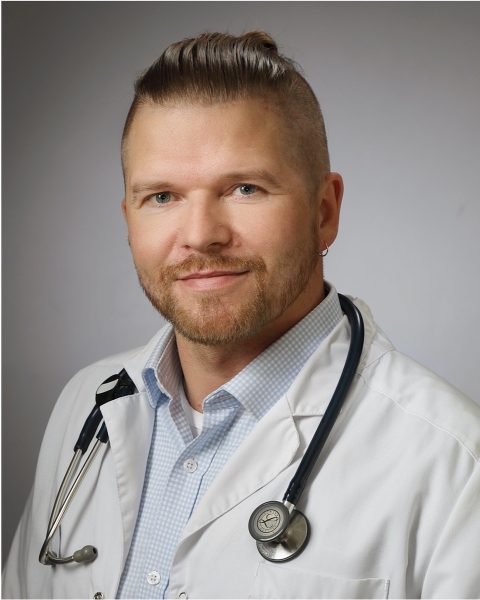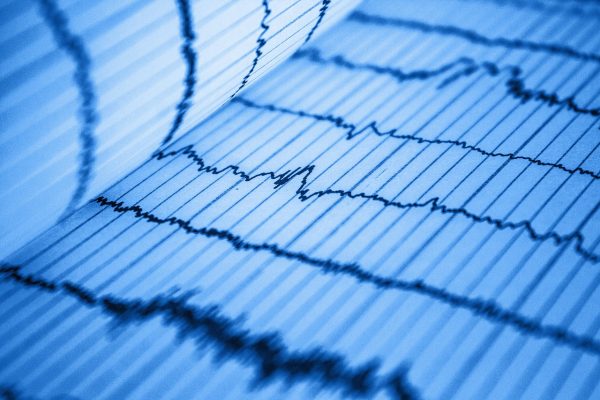Presenting Kuopio Health members: Sonai Health Oy
Sonai Health re-invents heart diagnostics
Sonai Health Oy is a health technology company established in 2021 that develops next-generation tools for primary healthcare. Sonai’s technology provides an alternative to the basic stethoscope used by general practitioners around the world. The company’s solution is based on sensor innovation, machine learning and a user-friendly user interface. Sonai’s cloud solution also enables remote diagnoses, follow-up analyses and integrations to different healthcare systems.
Sonai Health was established in July 2021, but the original idea emerged much earlier: for years, Arto Kotimaa, the physician who came up with the idea, had been wondering why there are no better solutions available for listening to patients’ hearts.
“For a physician, a stethoscope is an everyday tool used to perform routine examinations and assess the patient’s heart sounds. When it comes to heart murmurs, for example, the physician’s subjective assessment of what they hear at a given time is the basis for making entries, if any. In other words, there is no actual, recorded data on the examinations that you could later return to. With many other examinations like lab results, an electrocardiogram or a pulmonary x-ray, you can later return to the information. This ultimately makes the findings indisputable, as there is something you can compare them to”, explains the company’s Chief Medical Officer, Arto Kotimaa.
“Professor Heikki Seppä is an expert in sensors at VTT and I began to work on the idea with him. This is when we decided to establish a start-up around this idea. Researcher Antti Kotimaa also joined, and Jyri Seppä, who had prior experience in establishing a start-up, was appointed as the company’s CEO. In addition to its four main owners, the company also has one venture capitalist.”

Chief Medical Officer, Arto Kotimaa
Unique combination of device and technology
“We discussed the opportunities of sensor technology and generated ideas of how it could be amplified and what would be necessary to see during the measurement. While many electronic stethoscopes are available, they have not been widely introduced and doctors have not adopted them in their practice. Finally, we decided that we would develop a device that enables listening to all four auscultation points used when listening to a patient’s heart. This also makes our solution unique; it includes four sensors and a combination of several biosignals, including electrocardiogram (EKG) recording, listening to sounds and ultrasound technology”, Kotimaa says about the background of the innovation.
While the sales of the device are one of Sonai’s business opportunities, the company also produces numerical and graphical data and data analytics utilising an algorithm. The wireless data transmitted by the device is stored on a cloud service where the algorithm analyses the data.
“Our goal is to introduce the Sonai Health service package to the global market in the future. No other fully equivalent solutions exist and new biosignals can also be integrated into the device in the future.”
“We are currently in the process of developing the algorithm and will next carry out the first clinical trial. We’ve already been granted permission by the ethical board and Fimea and also have a research permit from the Oulu University Hospital. Juhani Junttila, professor of cardiology, is the head of research and Arto Kotimaa serves as the research doctor. In the clinical trial, the Sonai device will be compared to an ultrasound examination carried out by a cardiologist.”
“We will also discuss the use of generic data, which may be created based on available patient data. The data may also be pseudonymised and anonymised. The sensitivity and accuracy of the algorithm will be improved based on the background data. The aim is to develop a service, which gives us ability to evaluate individual measurement and deliver easily adoptable parameters about current cardiac condition, but also information on the possible progression of heart disease for critical clinical decision making”, Kotimaa notes.

More effective healthcare with data
The ageing of the population and the resulting need to improve the efficiency of operations are global challenges. Heart disease mortality plays an absolutely crucial role in this as the most significant cause of death worldwide. Therefore, there is a need for heart disease examinations that are as noninvasive and easily available as possible.
Indeed, the mission of Sonai Health is to produce data for healthcare professionals who make diagnoses based on the data and decide on possible needs for further treatment. The data recorded in the measurements is transmitted to a cloud service used for data analysis and the professional performing the measurement obtains data on the patient’s cardiac status. Each set of recorded data can also be compared to the previous one, which enables obtaining follow-up data. This allows tracking down disease progress and, for example, taking preventive measures and hopefully also discovering brand new signs of early disease progression. With better screening, detection and classification of patients heart condition, more expensive examinations and treatments can be targeted with better precision in specialiced medical care to ensure effective and timely measures for cardiac patients.
“For example, if we look at improving the effectiveness of care provided to cardiac patients, the device allows us to monitor what is going on in the heart. There is business potential in this area, for example with pharmaceutical companies. We can participate in drug trials where the Sonai device can be used to monitor the heart and drug effect”, Kotimaa explains the opportunities brought by the technology.
“Our vision is that the device will be capable of identifying heart murmurs reliably enough for the patient to be treated in primary health care, therefore reducing the burden on specialised medical care resources. Also, as the distances to university hospitals are long in practically all catchment areas of the wellbeing services counties, being able to treat and monitor a patient’s illness in their local health centre prevents a need for patients to travel up to a hundred kilometres to see a specialist. Another important factor is the earlier detection of the exacerbation of cardiac diseases. Less invasive monitoring that is lighter and faster to carry out and enables comparison to previous data also allows monitoring of the patient’s need for more intense medication as well as the effect that this has. This also translates into more effective treatment at the primary healthcare level.”
Important networks
Kuopio Health wishes to open up inspiring opportunities for new ideas and innovations, provide experts in the field of health and nutrition with chances for success, and communicate about the excellence in the region. The community promotes the emergence and development of an open innovation culture and aims to increase comprehensive welfare and vitality through its actions.
“I also come from Kuopio and one of our founders, Antti Kotimaa, is also active in the city. We’ve been involved in SPARK Finland and the Health Incubator Helsinki programme. We’ve participated in the Tahko Ski Lift Pitch event and come across Kuopio Health activities there. Building a network is extremely important for us and we’ve aimed to get involved in both Finnish and international accelerators and other communities. We feel that networking provides us with great contacts, potential investors and partners as well as concrete help in solving problems that may arise. Having to come up with solutions on your own would require way more work than when you can do it in a network”, Kotimaa concludes.